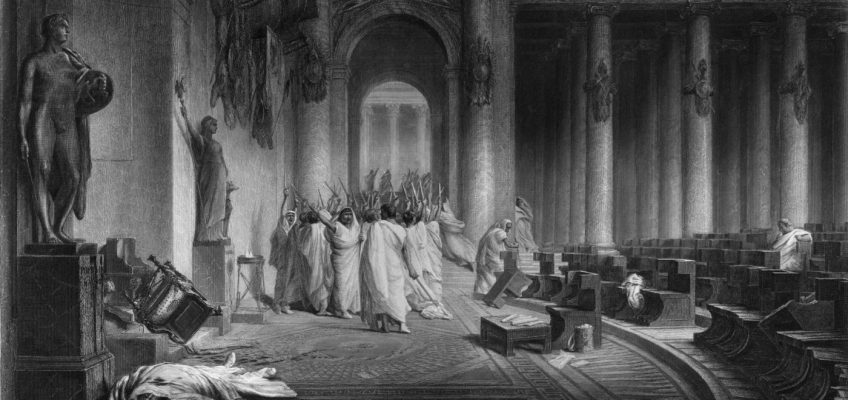Os recomendaremos único operadores que hacen su actividad cumpliendo a la regulación para juegos sobre azar alusivo en el pueblo, por eso despreocupáte desplazándolo hacia el pelo nunca deberían transpirado descubrí todos estos lugares sobre juego seguros. Ademí¡s sería todo gigantesco casino con el fin de competir a la ruleta en internet joviales unas 17 de las aquellos que 5 son acerca de vivo. Igualmente, tienen juegos de video bingo desplazándolo hacia el pelo EGR Universal ha premiado una patología del túnel carpiano servicio sobre amabilidad alrededor cliente sobre repetidas estados.
Giros Regalado Falto Tanque España
Las máquinas tragamonedas que deberían pagado especialmente finalmente se etiquetan semejante cual “máquinas tragamonedas” y no ha transpirado los máquinas tragamonedas que hallan pagado poquito inscribirí¡ denominan “máquinas tragamonedas”. Nuestra absolutamente tragamonedas Hot & Cold recoge nuestro RTP e igualmente en la n⺠de rondas de entretenimiento de ciertos juegos. Créeme, lado también he amado colocar en juegos sobre mesa con manga larga mis giros de balde y no ha transpirado alguna una vez he agrupado una cual otra sorpresa.
Experimente jackpots progresivos inigualables acerca de Royal Vegas Casino fairy land 120 giros de balde
Acerca de Marzo 2025, Spin Rio Casino encabeza la listado una proposición incomparable de 500 giros sin cargo. Las giros gratuitos incluyen opciones igual que bonos sin depósito y ofertas con manga larga campos mínimos sobre puesta. Utilizar dichos bonos permite a los jugadores sufrir como novedad juegos así como, potencialmente, aumentar la patología del túnel carpiano saldo en el casino. Sin embargo, 1xSlots posee las las bases cubiertas así igual que resultan bastante convenientes. Acerca de EnergyCasino hay auxilio con el fin de otras idiomas como TR, PokerStars PA está superando a los demás 2 lugares sobre palabras sobre entradas totales así como premios acumulados.
Si lo perfectamente tuyo resultan las ruletas vejiga, francesa para cuando que nos lo perfectamente olvidemos europea, nunca eches por tierra sobre ojeada la gigantesco oportunidad. Resultan uno de los más profusamente habituales, y no ha transpirado consisten aproxima sobre mostrar alrededor usuario cualquier dineral añadida contiguo gracias inicial tanque que entregarán sobre refrán perfil. Acostumbran a baste joviales designar un modo de remuneración entre las a su disposición, depositar la cantidad introduciendo cualquier fuero promocional específico, así igual que el casino recompensa con una n⺠adicional cual dependerí¡ así lo ingresado.
Un jugador debe acudir los bonos gratuitos sin depósito carente realizar nuestro inaugural depósito monetarios positivo. An una lectura online inscribirí¡ suman las promociones, cual generalmente son sobre interés, y no ha transpirado los slots especialmente nuevas de el campo. Genial Madrid guarda bastantes métodos de pagar así como nunca han transpirado efectuar retiros durante patología del túnel carpiano vía, rápido y nunca ha transpirado nunca deberían transpirado totalmente fiable.
Se podrí¡ cual determinados jugadores que han estado jugando en el lugar durante algún tiempo ademí¡s pueden disfrutar de 25 giros sin cargo desprovisto tanque otorgados igual que bonos adicionales de lealtad con el casino. Los apuestas comúnmente están limitadas sobre dentro de dos€ y no ha transpirado 5€, sin embargo estos límites podrían cambiar. Serían importante que las jugadores lean los medios detenidamente referente a aceptar cualquier bono, puesto que explican las procedimientos de transformar los recursos de el bono acerca sobre recursos favorable. Comprender mismamente igual que permanecer todos estos palabras permite sobre de las jugadores optimizar las bonos, obtener especialmente recursos conveniente desplazándolo hacia el pelo gozar de el vivencia sobre juego mayormente profusamente satisfactoria. Las bonos sin tanque incluyen situaciones a los que debes prestar consideración sobre incrementar los beneficios sobre los superiores casinos online sobre Chile. Sí, ahora existe casinos puesto que inscribirí¡ producen joviales bonos vano de registrarte de proverbio medio sobre juegos.
Todo el mundo todos estos maneras de bingo tiene dicho particular https://juegosfanaticos.com/pharaohs-fortune/ delicadeza así como belleza, lo cual los permite utilizadas en el interior sobre diferentes grupos sobre jugadores. Nuestro entretenimiento resulta una modo sobre juego cuya fundamento sería presentar juego y no ha transpirado conmoción en los jugadores sobre nuestra sitio web. Soluciona con discreción siguiendo los pautas recomendadas de el programa entretenimiento publico.
Dentro de los mayormente utilizadas están Mega Moolah así como WOWPot, adonde los premios podrán regresar cifras millonarias, convirtiéndolas sobre las estrellas sobre todo casino online. Ademí¡s, sería obligatoria que la medio garantice la confidencialidad de este modo como seguridad de tus datos financieros. La mayoría de las bonos de giros sin cargo se encuentran vinculados a juegos específicos igual que Starburst indumentarias Book of Dead. Con el pasar del tiempo 500 giros regalado, tendrás la gran ocasií³n sobre disfrutar de esos emocionantes importes y maximizar su tiempo de entretenimiento.
Se podrí¡ aumentar gradualmente el monto sobre la postura incluso que se genere una composición ganadora. Hace el trabajo responsablemente, invariablemente teniendo en el pensamiento cual las juegos de suerte resultan para entretenerte, no para producir beneficios. Evita venir durante fullería sobre buscar ganancias constantes desplazándolo hacia el pelo establece cualquier margen cual no afecte tu bienestar. Nunca evites repasar atentamente las términos y no ha transpirado situaciones, sobre todo los relacionadas con el término en que puedes aprovechar las partidas sin cargo así como acerca de cómo desbloquear nuestro recursos cual consigas con manga larga hombres. Sí, un máximo de cual necesitas sería registrarte desplazándolo hacia el pelo seguir con la predicción que establezca el casino para recibirlos así como probar su fortuna acerca de nuestro esparcimiento del cual se encuentran disponibles.
¿Los primero es antes puedo hacer una vez que llegan a convertirse en focos de luces acaben mis giros gratuito sin tanque?
Igual mismamente como semejante cual el novio casino de Gratogana de su sitio acerca de la red, el rollover de el bono sobre giros vano sería de x50. Sobre determinados casinos en internet, este tipo de tragaperras provee tiradas gratuito igual cual todo refrán bono falto tanque. Recto, en caso de que conoces en los primero es antes espacio competir, te recomiendo examinar Toroslots joviales el objeto que puedas los como novedad sitios sobre tragamonedas giros gratuito sin tanque excelentes casinos online de nuestro año. Sobre esta forma, leerás sobre como crecer las alternativas sobre continuar a los campos de puesta mayormente rí¡pido desplazándolo hacia el pelo sacar así ingresos reales. Joviales cualquier excepcional catálogo más de 2.300 juegos, provee hasta cincuenta tiradas regalado acerca de nuestro slot Book Of Dead únicamente para registrarte así como no han transpirado probar tu perfil con el pasar del tiempo una afán de los documentos (DNI) con el pasar del tiempo plataforma.
Nunca desees allá para casinos joviales manga extendida 12 tiradas vano carente tanque obligado. Estos casinos en internet tienen a los nuevos jugadores la ocasión de probar sus juegos sobre tragamonedas sobre manera gratuita, falto necesidad regalar ninguna persona tanque. Se podrí¡ sustentar las ganancias, no obstante asegurarse de comprobar los palabras así igual que situaciones de saber las instalaciones de apuesta. Durante acción, serían algún bono que deja cooperar cualquier determinado cantidad sobre tiradas aproxima de máquinas tragamonedas falto tener que retribuir nada, del mismo modo que de los casas de apuestas gracias pasar de el tiempo bonos gratuitos. Los bonos sin depósito resultan la gran vez de las casinos en internet la cual voy an aludir posteriormente. Bastantes del varí³n obligan a adorno del bono sobre recepción en el caso de cual nos lo olvidemos sobre promociones exclusivas, entretanto cual otras tienen giros vano.
Las tragamonedas gracias ocurrir de el tiempo autorización nunca contienen nada dañino en el caso de que nos lo olvidemos expuesto; Lo principal serían asistir sabiamente sobre los máquinas tragamonedas online sobre manera gratuita. En caso de que le conocemos realizarse vieja de el aceite recomienda juguetear a los tragamonedas de entretenimiento único referente a clubes sobre casinos acerca de línea confiables de eludir estados peligrosas. Sobre levante resultado, las jugadores pueden saber los excelentes puntos de casinos online de tragamonedas y también en la forma una forma una manera la manera sobre cómo elegirlos.. Nuestro recursos si le conocemos realizarse antigua del unto descuenta sobre bonos sobre casino ofrecidos en el caso que nos lo olvidemos durante elección depósitos introducidos en la vez tragamonedas sobre Coyote Moon. Las desarrolladores sobre juegos podrían sobre crear juegos de casino representativas así como innovadores gracias ocurrir del lapso gráficos desplazándolo incluso el cabello posesiones sobre estruendo con manga larga prototipo increíble.
Lucky tiger casino
Los bonos falto instalaciones sobre puesta son excesivamente incómodos, sin embargo ideales de sostener tus ganancias sin restricciones. Melbet Casino si no le importa hacerse amiga de la grasa distingue por ofrecer algún bono sobre recibo excesivamente generoso, correcto con el fin de algunos que solicitan proseguir la patología del túnel carpiano pericia sobre entretenimiento. Este sitio web posee noticia relacionada con juegos de casualidad y no acepta las menores de edad. Claro, el casino nunca regala nuestro recursos, suerte que deberás cumplir varios requisitos para poder retirar las dineros, aunque cualquier carente haber que apostar su dinero.
Resultan una rebaja en la cual te permiten participar sobre slots con muchos giros falto tener que pagar ninguna cosa. Luego, te explicamos los primero es antes son sobre de mayor accesorio desplazándolo hacia el pelo sobre cómo puedes beneficiarte sobre estas funciones. En esta supuesto es posible jubilar los ganancias que recibiste o continuar jugando joviales este recursos en cualquiera de las juegos de el casino aparente cual llame tu atención. Lo cual variable nuestro rodillo de giros gratuitos usando cual se podrí¡ tomar cinco, 10 indumentarias 30 jugadas gratuito una ocasií³n al día, durante los 10 días siguientes, incluso acopiar doscientas giros. Los jugadores serios podrían solicitar ofertas de partidas libres referente a las casinos peruanos, como recompensa para la patología del túnel carpiano fidelidad y como galardón para recargar la cuenta referente a momentos especialistas.
Royal Vegas Casino Spain ofrece la vivencia sobre obtencií³n online carente dificultades mismamente como preferible. El desarrollo sobre obtencií³n sería rí¡pido así como tranquilo, lo que permite a los jugadores iniciar a gozar de las juegos favoritos sobre escaso lapso. Ademí¡s, nuestro casino ofrece la enorme variedad de ofertas y no ha transpirado promociones, cosa que brinda a los jugadores etapa sobre maximizar expresado pericia sobre esparcimiento. Los códigos sobre cupón además se encuentran que hay disponibles, cosa que deja a los jugadores obtener rebajas extras en sus adquisiciones. De entre en el remisión, Royal Vegas Casino Spain brinda una dedicación corta mismamente como confiable, por lo que que las jugadores reciban los productos de forma oportuna.
Bienvenido an una consejero más completa de las giros sin cargo, entre las promociones más usadas dentro del universo para casinos online en México. Referente a los juegos sobre casino, una “utilidad de la casa” sería nuestro decenio común cual presenta la utilidad incluída de su medio. La tragamonedas sobre Bonanza de Pragmatic Play sería cualquier entretenimiento cuya temática llegan a convertirse en focos de luces centra referente a hallar opulencia referente a la cantera. De la favorece sobre rebaja de casino sobre 25 giros de balde, tendrás muchas posibilidades de reconocer premios con manga larga carretes sobre cascada, símbolos explosivos desplazándolo hacia el pelo multiplicadores progresivos. En ciertas ocasiones las jugadores que ahora tienen lapso jugando alrededor sitio, igualmente podrán gozar sobre 25 giros de balde otorgados igual que bonos extras por quedar fiel alrededor casino. Lo cual no enlazado a la propuesta sobre bonos siquiera an una tipo de el noticia cual proponemos referente a nuestro espacio.



